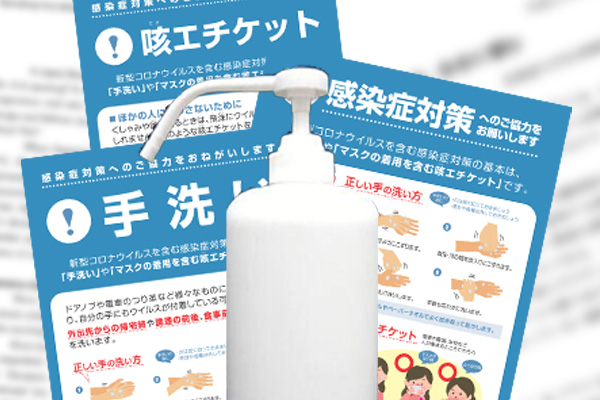Social confusion has arisen over an interim report on May 28 by the National Institute of Technology and Evaluation on verification tests of candidate alcohol replacements to disinfect the novel coronavirus.
The confusion was caused partly because some news media reported erroneously that hypochlorous acid water would be ineffective for disinfecting the coronavirus as a result of the interim report by the NITE commissioned by the Ministry of Economy, Trade and Industry, and partly because the Ministry of Education prematurely advised elementary and junior high schools in Japan to refrain from using hypochlorous acid water sprayers.
Education Ministry following media’s misinterpretation
As the use of hypochlorous acid water had smoothly spread at local governments, elementary schools, hospitals and general households until recently, the production of ultrasonic humidifiers and air purifiers using hypochlorous acid water had failed to catch up with rapid growth in their demand.
Hypochlorous acid water is produced through the electrolyzation of hydrochloric acid water or sodium chloride water to be arranged to become slightly acid. The U.S. Environment Protection Agency has registered hypochlorous acid water as a recommended disinfectant for the coronavirus. China’s National Health Commission in its guideline has clarified that hypochlorous acid water is suitable for disinfecting indoor air, water equipment surface, skins and mucous membranes. Hypochlorous acid water has been massively used also in South Korea.
However, the interim NITE report noted that the effectiveness of hypochlorous acid water was not confirmed because of differing test results at the Infectious Disease Surveillance Center and Kitasato University recommissioned by the NITE. This was reported by media as denying the effectiveness, causing confusion among hypochlorous acid water users.
Based on World Health Organization Director General Tedros Adhanom Ghebreyesus’s remark that it would be dangerous to spray any disinfectant, a NITE fact sheet wrote that no scientific ground had been given for the safety of spraying hypochlorous acid water, contributing to the confusion.
On June 4, the Ministry of Education issued a notice on disinfection methods at schools, saying that schools should not use hypochlorous acid water sprayers at any place where students are present, given that their effectiveness and safety had not been clarified and that schools have students for whom various health considerations are required.
As a result, hypochlorous acid water and ultrasonic humidifiers were removed all together from local governments and elementary and junior high schools throughout Japan, leading massive complaints to be sent to NITE and METI.
Country-building invulnerable to infectious diseases is indispensable
On June 4, NITE released questions and answers about its assessment of disinfection methods’ effectiveness against the novel coronavirus, denying media reports that NITE called for refraining from spraying hypochlorous acid water for safety reasons and emphasizing that NITE had given no view about whether spraying would be advisable or not.
Hypochlorous acid water is the only virus disinfectant that little affects animal and human health. The government is recommended to take advantage of the characteristics of hypochlorous acid water to revive Japan’s economy and build a country invulnerable to infectious disease. This could contribute to creating a new industry in Japan to prevent infectious diseases. The government should focus on verifying the effectiveness of hypochlorous acid water.
Tadashi Narabayashi is a specially appointed professor at the Tokyo Institute of Technology and a director at the Japan Institute for National Fundamentals.


